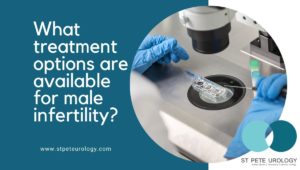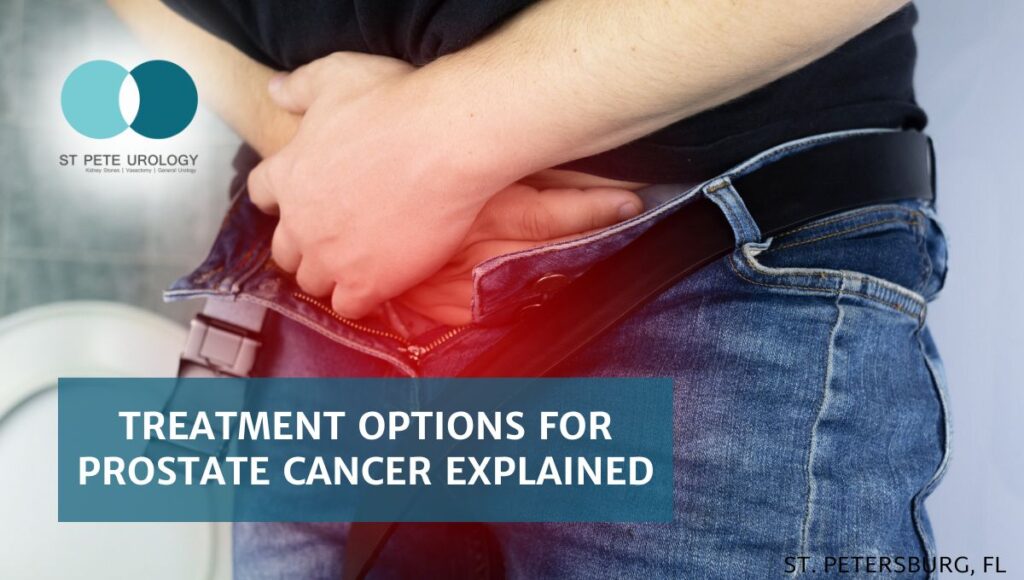 Have you and your partner been experiencing challenges conceiving a child ? There are many potential reasons for this but one obvious is basic health issues connected with fertility
Have you and your partner been experiencing challenges conceiving a child ? There are many potential reasons for this but one obvious is basic health issues connected with fertility
What treatment options are available for male infertility?
- Surgery
In cases where infertility is due to obstructions in the sperm transport pathway, surgical correction can help to restore fertility.
For example, if the vas deferens is blocked in a manner that prevents sperm from reaching the urethra, a qualified urologist can conduct an operation to remove the blockage. Likewise, a varicocele can lead to lower sperm production but often be repaired surgically within the spermatic cord leading to an enhancement to your fertility.
Surgery may also be performed to retrieve sperm directly from the testicles or epididymis using a sperm retrieval surgical technique.
Your doctor may do a transurethral resection of the ejaculatory duct to help eliminate an obstruction in your ejaculatory duct, improving the chances of any inflamed or chronically dilated areas in your ejaculatory duct to normalize.
A similar procedure—the transurethral resection of the seminal vesicles—may also be an option to help eliminate an obstruction in the seminal tract or in a strategic area, enhancing fertility.
- Hormone therapy and medications
You may need hormone medications or hormone replacement therapy if your infertility is due to high or low levels of certain hormones or problems with how your body synthesizes hormones.
In men with mild sperm abnormalities, the drug clomiphene citrate can in many cases help to boost semen quality, improve sperm count and enhance sperm motility.
If the infertility is due to problems in the pituitary gland or hypothalamus, human chorionic gonadotropin (hCG) may be administered, usually combined with recombinant human follicle-stimulating hormone (rhFSH). When prescribed, the treatment can help achieve normal blood hormone levels so that your body can better produce sperm.
For many protocols, human chorionic gonadotropin (hCG) is injected three times per week under the skin for between six months and one year. Then blood tests will be run and the dose adjusted as necessary.
After six months of treatment, typically your urologist will check and inspect your semen. If sperm is still absent, doctors will in some cases add recombinant human FSH to the injected hCG.
- Assisted reproductive techniques (ARTs)
Assisted reproduction involves obtaining sperm by normal ejaculation, surgical extraction, or donor individuals, depending on the specific case.
The sperm can then be inserted into the female genital tract or used to conduct in vitro fertilization or intra-cytoplasmic sperm injection.
The sperm collected from ejaculated semen or obtained using a needle inserted into the testicle is processed and introduced to the eggs by intrauterine insemination (IUI), in-vitro fertilization (IVF), or intra-cytoplasmic sperm injection (ICSI).
Intrauterine insemination (IUI) is done during ovulation with sperm injected directly up the uterus. The woman is first prescribed targeted medications to increase the number of eggs she releases.
In-vitro fertilization (IVF) involves mixing sperm with multiple eggs collected from your partner in a plastic dish (“test-tube”). The fertilized eggs are then inserted into the uterus. Of course, IVF requires viable sperm.
In intracytoplasmic sperm injection, a single sperm is injected via a tiny needle into an egg. The fertilized egg is then implanted in the uterus. The procedure is appropriate when the sperm count is extremely low or abnormal.
At St. Pete Urology, we work with couples to optimize their reproductive health.
Contact us today if you have issues conceiving and for more information on the diagnosis and treatment of infertility and other urological problems.





